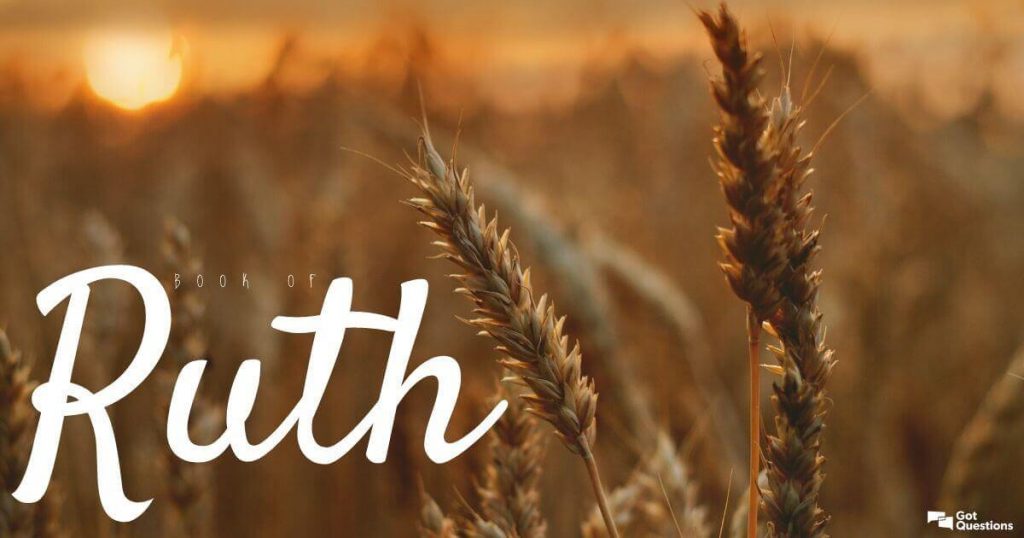
Throughout November we’re taking an in-depth look at Ruth, the little book that helped pave the way for God’s Messiah to come into the world.
Tucked away amongst the voluminous historical narratives of the Old Testament, like a Mom and Pop grocery store on a street that is lined with skyscrapers, there is a surprisingly humble Bible story called the book of Ruth.
It has a surprising hero – a foreign-born woman whom no one expected to give a rip about the God of Israel, let alone God giving her so much as a second thought.
It has a surprising theme – ordinary people trying to find hope in the midst of the scariest kind of hopelessness.
And it has a surprising ending – Ruth, whom many saw as a nobody, becoming Ruth the great-grandmother of David, Israel’s greatest king, and thereby becoming a part of the genealogy of the Savior whose birthday we celebrate on December 25.
But why study this Old Testament book as we prepare for Christmas?
Ruth is all about hope. It is a story in which things seem to grow darker and darker – not unlike many of our own stories right now. The secular holiday formula that we know so well – that happiness can be found through shopping and parties and sappy made-for-TV movies – feels more superficial than ever.
What stands out in the book of Ruth is that hope appears almost out of the blue. As Bible scholar Robert A. Watson puts it, these four short chapters take us “from emptiness to fullness; from aimlessness to direction; from hopelessness to purpose; from impossible to already done; and from loneliness to love.”
The drama unfolds in a tiny village with a familiar name – Bethlehem. And everybody’s hopes become centered on the possibility that a baby is going to be born – a child who will come into the world and change everything.
If you’re hungry for hope this Christmas, Ruth is a very good place to start.
As we look together at this story we’ll discover that God does not spare his people from suffering. All of us from time to time will find ourselves in personal deserts of grief, fear, pain, and humiliation. Such deserts are not just profoundly uncomfortable. They may seem incredibly unfair. But they all have spiritual significance.
Remember what the prophet Isaiah wrote as he looked ahead to the future arrival of God’s Messiah? “In the wilderness prepare the way for the Lord.” It was in the wilderness that John the Baptist prepared the nation of Israel to meet Jesus. And it is in the wildernesses of our own seemingly hopeless situations that we find out who Jesus really is.
We know of at least 15 occasions that David the king ended up in the Judean wilderness. Today we might visit desolate places in order to go hiking or off-roading or to take pictures of wildflowers. But David was never a wilderness tourist. He was usually chased into desperately lonely places.
Nevertheless, David ultimately came to learn that his wilderness years were some of the best years of his life. Looking back on our own lives, we may conclude the same thing.
The desert is where David learned that God can be trusted. A number of the Old Testament psalms record his thoughts and feelings during his darkest days. David wrote, “Even though I walk through the Valley of the Shadow of Death…” (Psalm 23:4). I will never forget the counsel of a beloved homiletics professor: “When you’re reading Scripture aloud, never place the emphasis on a preposition – with one exception. Always say, ‘Yea, though I walk through the Valley…’”
We may be in the valley. But by God’s grace we will get through the valley. There is hope.
Ruth is the story of a family that found out just how true that is.
Early in the days of global discovery, European cartographers occasionally wrote three Latin words at the periphery of their maps: Ne Plus Ultra. Those words literally mean “not / more / beyond.” It was a standard way of saying, “We’ve journeyed to the edge of human experience, and there’s nothing else out there.”
They were just guessing, of course. Today as we gaze at their maps it’s clear they didn’t realize an entire hemisphere was waiting to be discovered.
You may be tempted to write Ne Plus Ultra at the periphery of your own life.
Don’t do it.
Hold on to the hope that you’re just beginning a journey of discovery.
